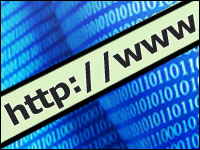
It is my belief that Benjamin Franklin, were he alive today, would throw off his visor and scream at the transition occurring currently from a print-society to a cyber one.
It was only a hundred years ago, at the dawn of the print-society, where words, nicely arranged and neatly printed on newsprint, were sold to a select and literate few. That’s how the power of knowledge and influence was fertilized in the broadsheets, sprinkled though the elite gossip machines and eventually picked by the commoners. Much later, or only a decade ago, most newspapers, weighty and tossed at every second doorstep, still carried the germination of well-branded ideas, and still carried the power to keep our societies glued.
Facing the Truth
But today, embedded in a new cyber-society, newspapers are known to carry nothing but yesterday’s old news with fresh ink. They are commonly treated like unnecessary fuel for our recycling bins. This mighty medium of the classy period of the print-society is gasping for the last breath in the cyber-society of today. The days of the newspaper business are numbered.
Like the evolution of any other cultural tsunami, the denial of the newspapermen and their continued resistance to change has only prolonged this agony. Years ago, they vigorously fought against the use of color pictures as being too tacky for journalistic words. Second, they resisted Web sites as cop-outs to the new medium of the Internet, and demanded outrageous fees, but later succumbed to free deals.
Now they are in denial in accepting this as one of the final rounds in a fight to survive. Newspapers may always be with us in some form, but they will cease to serve as the principal backbone of the media.
Time to Fly Kites
What newspapers do today is not very different from what they did a hundred years ago. A great but cumbersome process started with Franklin fully relying on Gutenberg’s moveable type and flat presses, but, as later fully exposed by Marshall McLuhan, this process is now simply being replaced by YOU. Now, you can do some research and write up some ideas and e-mail all of that to a selected list of people in seconds. Essentially, that’s news distribution.
The noble concept of growing trees and pulping them to make paper and to further go through another 1,000 steps to bring that branch of the tree into tabloid shape to be inked, read, and further recycled is dead.
Last Rites
The so-called media barons and the newspapermen controlling the governments are becoming almost mythical. The traditional media is losing its power and impact to the Internet. In time, this whole issue of centralized domination of the media will be transformed into fragmented and widely scattered information points controlled by individuals and their distribution and broadcast presence on the global e-commerce circuitry. This will result in a change from selected media-barons to masses of new information-barons controlling the information pulse.
The new generation likely has no idea what this article is even talking about. Today, the newspaper can’t deliver branding and marketing messages effectively and the business has become very expensive. The role of paper in the process of boosting corporate image and brand name identities has shrunken, with that role now shifting to the realms of e-commerce and other cyber-branding mediums. With circulation shrinking, ad sales flat and a dark future, some desperately require face-saving strategies to save some established brands. At the same time, they need to reinvent themselves with some new cyber-branding strategies and name identities if they wish to survive in the long run.
Key Questions
In most cases, where newspaper can’t compete with instant news and information, it might be better to shrink the publication into a monthly newsmagazine with good indexing of the past events with analysis. Furthermore if the centralized editorial control and well-branded partisan ideologies were also failing then it could be wise to make them free-flow content generators for the free-flow Internet medium. If the classical structure of the antiquated newspaper company were to melt then would it really transform into a modern cyber-office and blend with the modern times? Well, the last quarter-of-a-century saw more businesses change and evolve than any other period. Newspapers are not excluded.
Though newspapers still have the largest grassroots-level coverage of events and are very much read by seniors and the aging population, the question is how long that loyalty will last. In my view, the new generation has no appreciation or even understanding of the entire process of news distribution.
Lastly, there is one positive aspect of the cyber-society, and that is, the truth is often simple and very straightforward. Finally, we’re seeing the manipulative and intentionally deceptive slants in newswriting to be rejected by the masses. The real truth is now increasingly being delivered to our overly glutted earth.
Why not save the trees, the toil and the ink? Just hit the send button and distribute your own news. No newspaper would dare to print this article, but they should pay attention lest they disappear altogether.
Naseem Javed, author of Naming for Power and alsoDomain Wars, is recognized as a world authority on global nameidentities and domain issues. Javed founded ABC Namebank, aconsultancy he established a quarter century ago, and conducts executiveworkshops on image and name identity issues. Contact him at [email protected].










































Social Media
See all Social Media